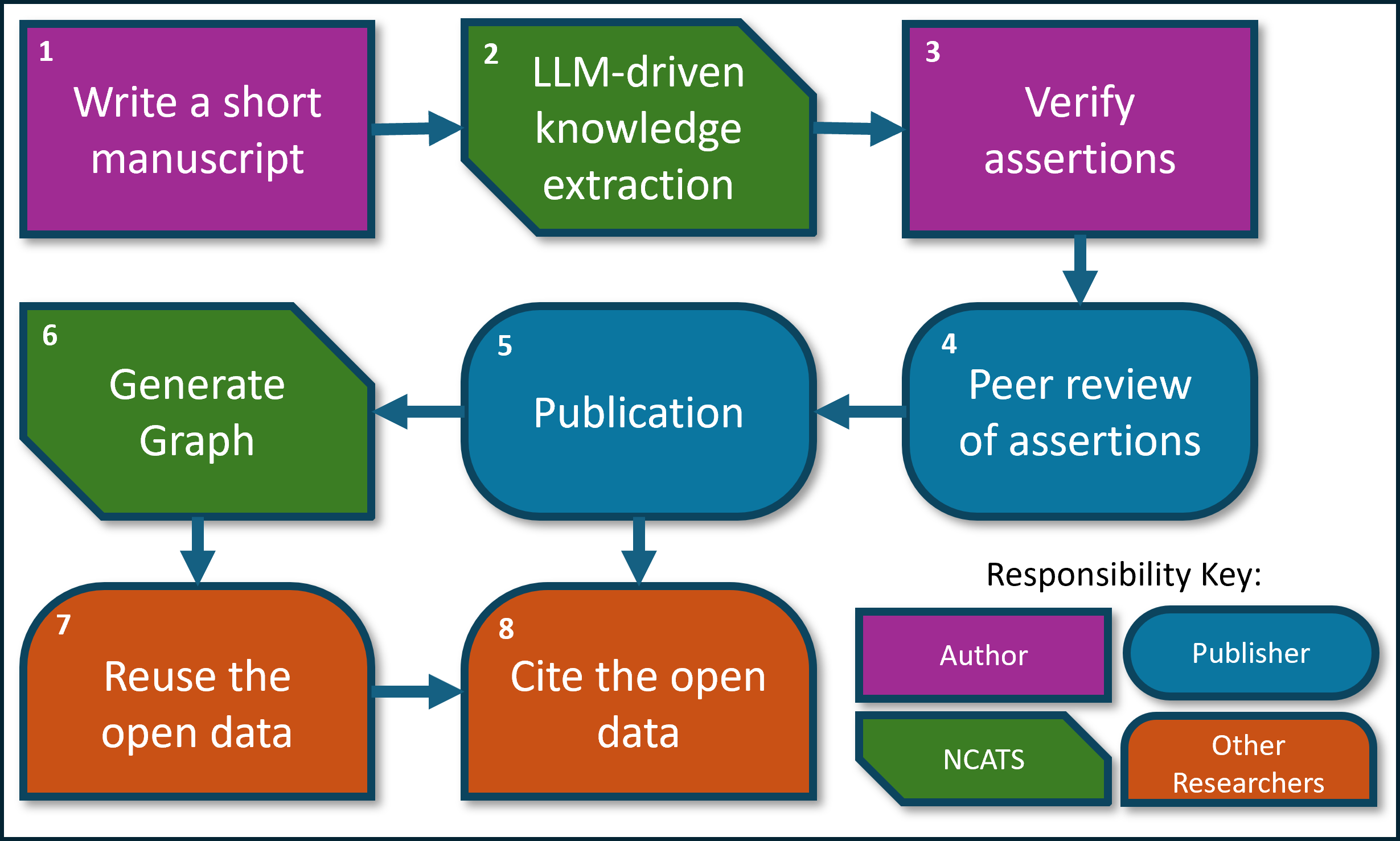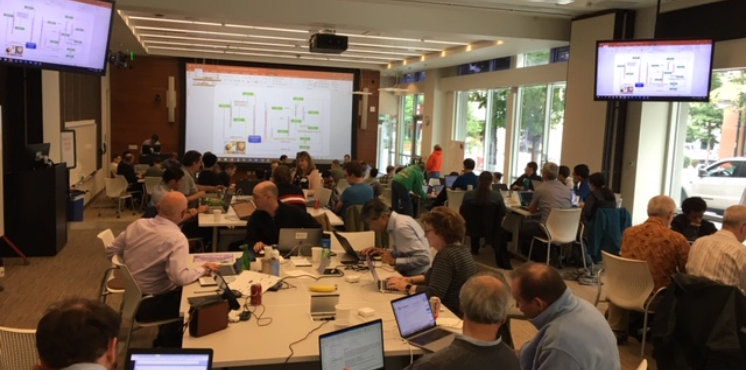About LitCoin
Transforming biomedical data and observations into knowledge graphs can improve researchers’ ability to connect disparate concepts and build new hypotheses. In turn, this can allow researchers to discover work done by others that would not otherwise be shared.
About LitCoin
LitCoin aims to support NIH’s data sharing goals by setting a path for researchers to gain credit for sharing data and observations through the accepted academic currency: scientific publications.
Natural language processing (NLP) is being used to convert complex text into simple statements that represent the outcomes of research. The LitCoin system scans a short manuscript that describes the research. Next, it makes a summary that is then structured into a machine-readable format, similar to a sentence diagram (Figure 1, panel 2). LitCoin generates these artificial intelligence (AI)-ready representations of reported observations, needing little effort or any computational knowledge from the author. These diagrams can then be shared with authors and publishers for review (Figure 1, panels 3–4). Once verified by the author and publisher, these representations can be merged into a network of a larger body of machine-readable representations of current literature (Figure 1, panel 6). The network will show connections across publications that traditional literature searches or search engines cannot identify. This makes data more FAIR — findable, accessible, interoperable and reusable.
The publication of basic research findings is generally limited to data that directly relate to a working hypothesis. Research requires many experiments, but not all collected data get published. Even data with consistent results may not be included in the publication if they do not fit into the narrative that the author is crafting. In this way, the author of a scientific publication is similar to the author of any work of nonfiction — editing is sometimes necessary, and some important discoveries may be left out. Other researchers may then spend time and resources repeating that work, which could delay the development of new treatments. LitCoin aims to address these issues by helping researchers release, and get credit for, these and other findings that do not fit the current publishing practice.

Figure 1: LitCoin submission process.
LitCoin Foundational Knowledge Graph
NCATS and RTI International are designing the final LitCoin algorithm. We are using the eight NLP models from the winners of the LitCoin NLP Challenge and a custom large-language model (LLM) based on Meta’s Llama3 model, named HEALpaca. In partnership with The Helping to End Addiction Long-term® Initiative, or NIH HEAL Initiative®, the LitCoin Foundational Knowledge Graph is being tested and validated using about 5,000 abstracts from PubMed related to the research fields of pain and addiction.
Creating a New Currency for Biomedical Research
LitCoin offers researchers a way to report observations that were not highlighted in another primary publication. Such data otherwise would not be shared. The LitCoin platform also will allow the generation of accurate, highly connected biomedical knowledge graphs of future publications without disrupting author workflows. We aim to build on the established publishing pipeline. LitCoin will generate graphs at publication and avoid time-consuming and expensive creation by a third party after the fact. The AI-ready nature of the knowledge graphs will transform literature mining, giving researchers a more thorough understanding of the state of the science in their research field. This will greatly improve the ability to identify leads when generating hypotheses. LitCoin also allows for the citable publication of many observations reported as LitCoins that are made by those carving out their research niche. This will support career development for students and early-career researchers.
LitCoin comes at a turning point in American science. A recent White House policy will soon require federally funded research to be made freely available. This initiative will allow researchers and publishers to easily contribute to FAIR data practices without needing extra time or resources. LitCoin aligns the new policy with the longstanding academic currency of publications.
Related Research

National Center for Biotechnology Information
The National Center for Biotechnology Information advances science and health by providing access to biomedical and genomic information.

About Biomedical Data Translator
This program funds projects that integrate existing medical and biological data from different sources to quickly and easily reveal valuable connections and insights about diseases, including potential treatments.

Helping to End Addiction Longterm® Initiative, or NIH HEAL Initiative®
As part of the NIH HEAL Initiative, we are applying our translational science approaches to accelerate the development of new treatments for opioid misuse, addiction and pain management.


